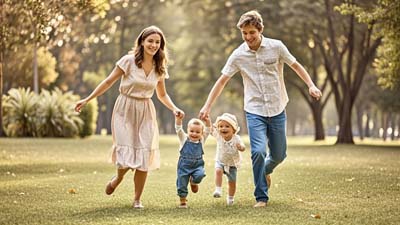Answer: B
Tā yǒu liǎng gè ér’zi, dà ér’zi jīnnián shísuì, xiǎo ér’zi jīnnián sān suì.
他 有 两 个 儿子,大 儿子 今年 十岁,小 儿子 今年 三 岁 。
He has two sons, the oldest son is 10 years old this year. The youngest son is three years old this year.
Dà ér’zi bǐ xiǎo ér’zi dà sān suì.
A. 大 儿子 比 小 儿子 大 三 岁。
The oldest son is 3 years older than the youngest.
Dà ér’zi bǐ xiǎo ér’zi dà qī suì.
B. 大 儿子 比 小 儿子 大 七 岁。
The oldest son is 7 years older than the youngest.
Xiǎo ér’zi bǐ dà ér’zi dà sān suì.
C. 小 儿子 比 大 儿子 大 三 岁。
The youngest son is 3 years older than the oldest.
Xiǎo ér’zi bǐ dà ér’zi xiǎo shí suì.
D. 小 儿子 比 大 儿子 小 十 岁。
The youngest son is 10 years older than the oldest.
You can figure the answer out by the word “比 (bǐ) compared to.” There is a commonly used sentence structure that uses this word: “A + 比 + B + adj.” (A is more ____ than B.)
Wáng dōng bǐ tā dìdi pàng.
王 东 比 他 弟弟 胖。
Wang Dong is fatter than his younger brother.

HSK Sample Chinese Test: Wedding Plan
HSK Sample Chinese Test: Has the Sister Found her Mother?
<<Back to “Test Yourself for the HSK 3 with This Chinese Quiz!”




Great test